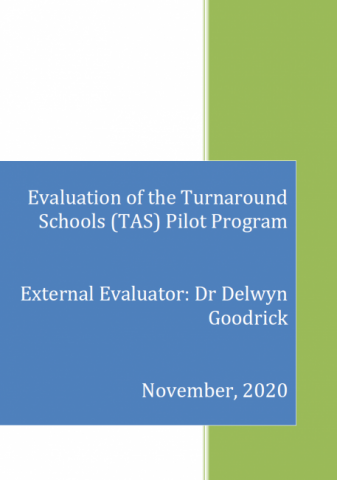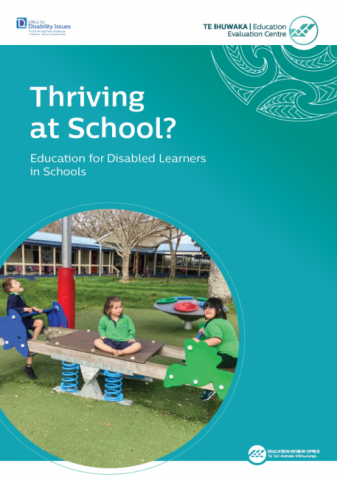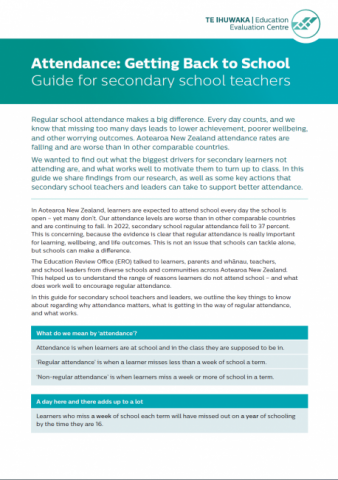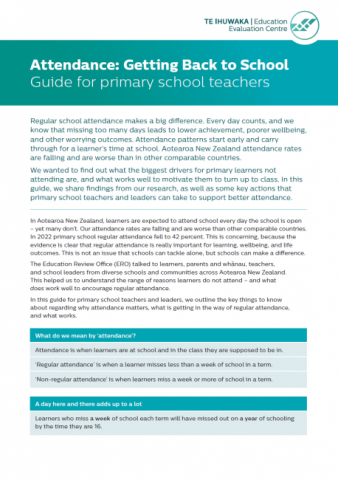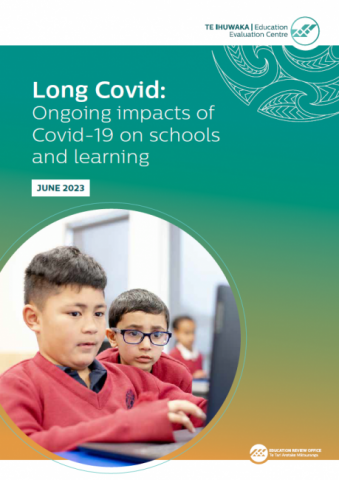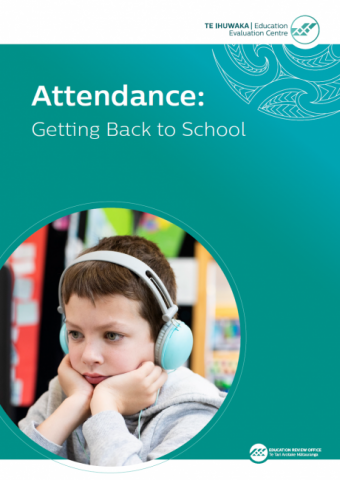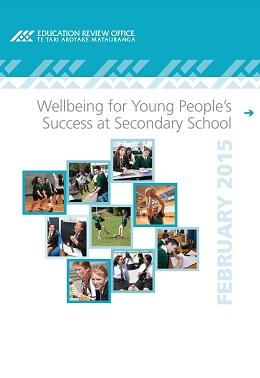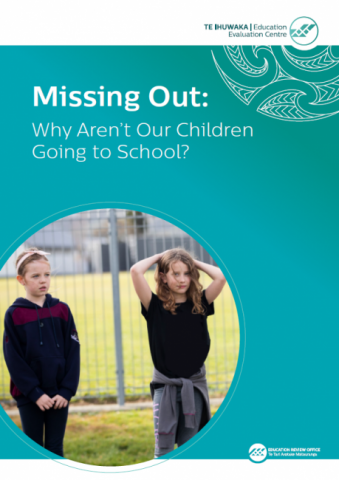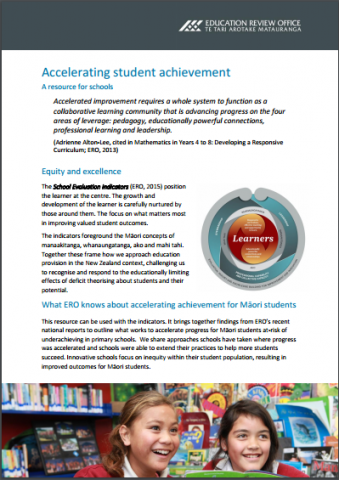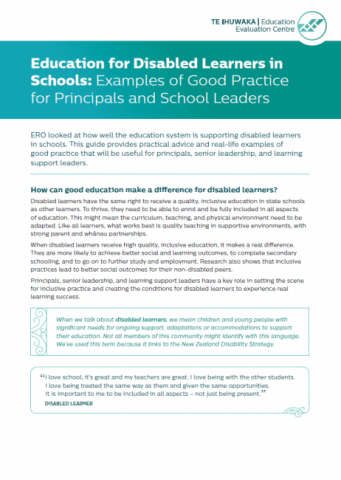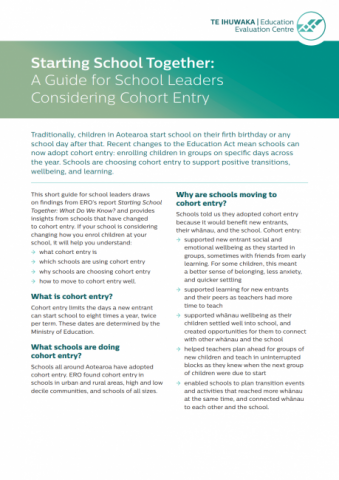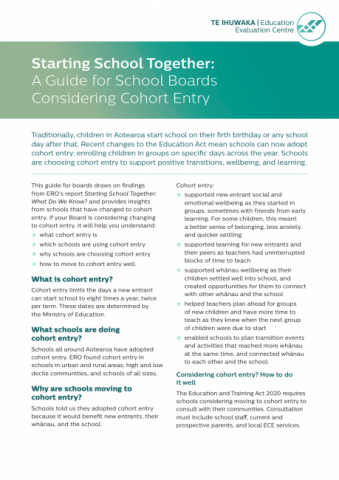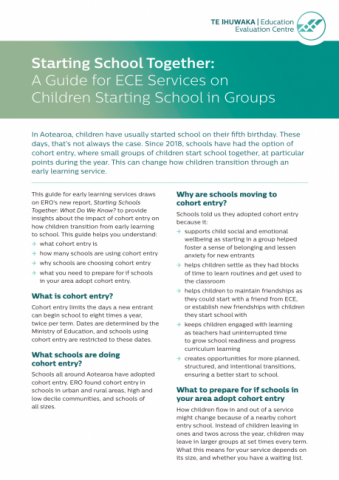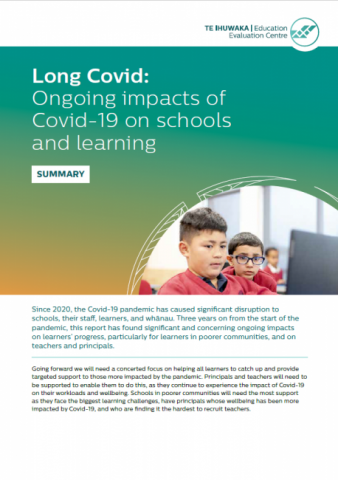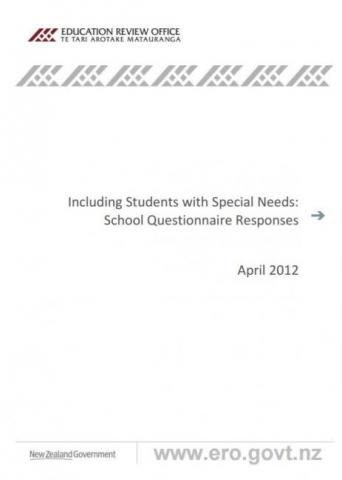Evaluation of the Turnaround Schools (TAS) Pilot Program
Published: 26 Jul 2021
There are a small number of schools in New Zealand that are failing to provide students with equitable access to high-quality learning experiences. Students within these schools are not achieving expected academic outcomes.
Despite longitudinal reviews by the Education Review Office (ERO) and support from the Ministry of Education (The Ministry), some of these schools continue to make limited progress or may experience further decline. The ERO and the Ministry identified the need for a different approach.
- Audience:
- Academics
- Content type:
- Research
